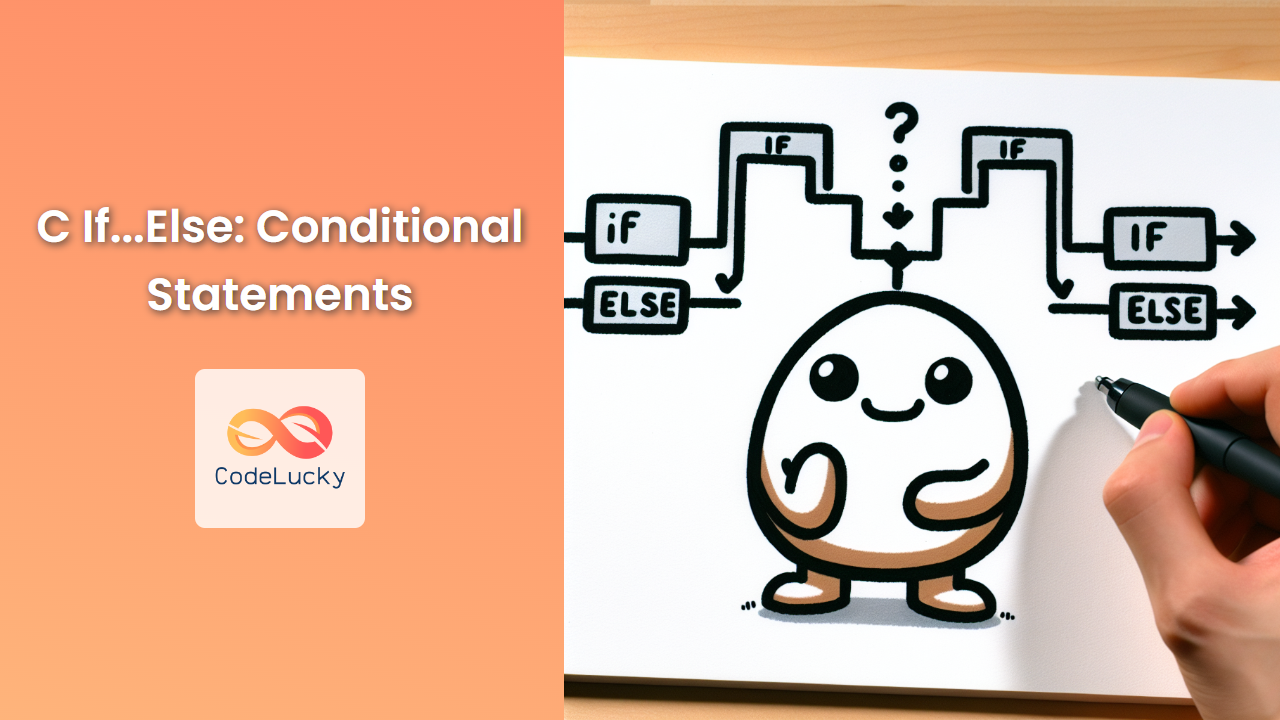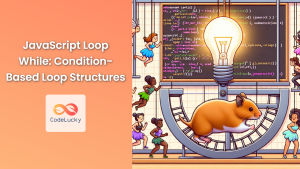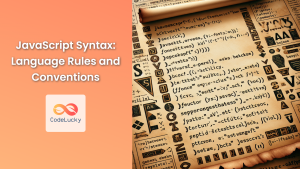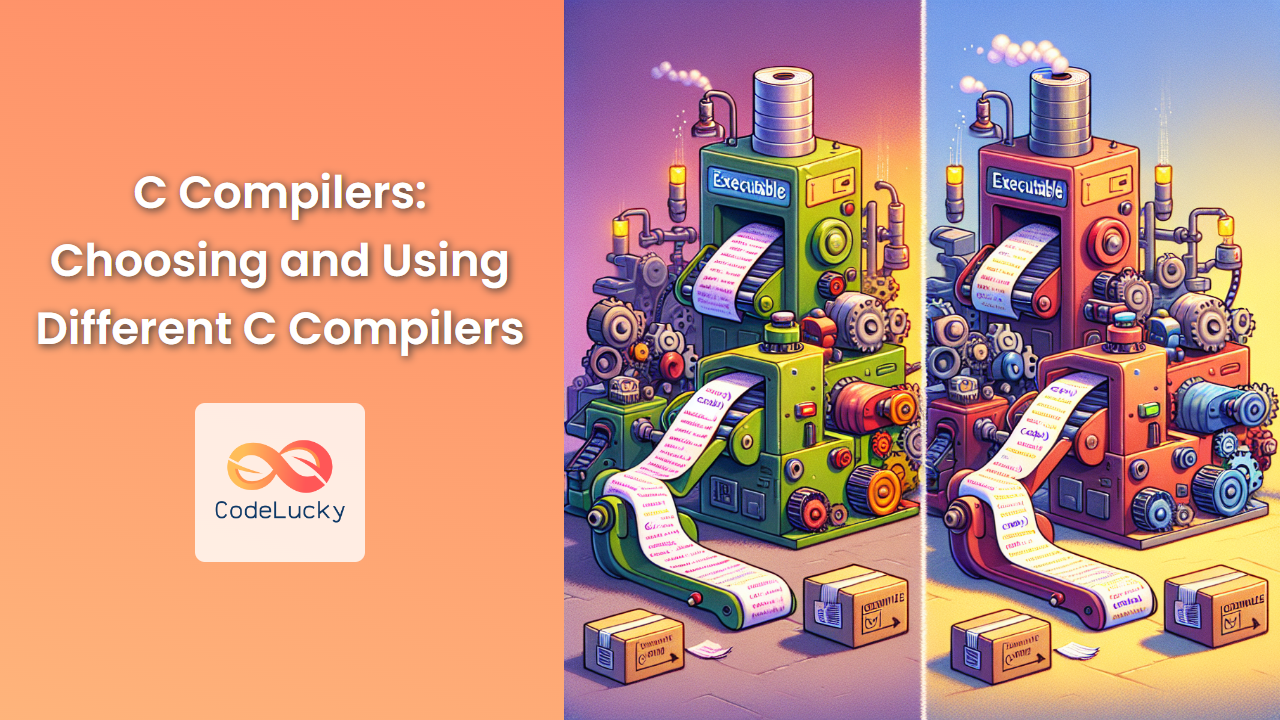In the world of programming, decision-making is crucial. Just as we make decisions in our daily lives, programs need to make choices based on certain conditions. In C, the if...else statement is the cornerstone of conditional programming, allowing our code to execute different blocks based on whether a condition is true or false.
Understanding the If Statement
The if statement is the simplest form of conditional statement in C. It allows a program to execute a block of code only if a specified condition is true.
Basic Syntax
if (condition) {
// code to be executed if condition is true
}
Let's break this down:
- The keyword
ifstarts the statement. - The
conditionis enclosed in parentheses(). - The code to be executed if the condition is true is enclosed in curly braces
{}.
Example: Checking for Positive Numbers
Let's write a simple program that checks if a number is positive:
#include <stdio.h>
int main() {
int number;
printf("Enter a number: ");
scanf("%d", &number);
if (number > 0) {
printf("The number is positive.\n");
}
return 0;
}
In this example:
- We declare an integer variable
number. - We prompt the user to enter a number and store it in the
numbervariable. - The
ifstatement checks ifnumberis greater than 0. - If true, it prints "The number is positive."
Let's look at some sample inputs and outputs:
| Input | Output |
|---|---|
| 5 | The number is positive. |
| -3 | (No output) |
| 0 | (No output) |
As we can see, the message is only printed when the input is a positive number.
The If…Else Statement
While the if statement is useful, often we want to execute one block of code if a condition is true and a different block if it's false. This is where the if...else statement comes in handy.
Basic Syntax
if (condition) {
// code to be executed if condition is true
} else {
// code to be executed if condition is false
}
Example: Odd or Even
Let's write a program that determines if a number is odd or even:
#include <stdio.h>
int main() {
int number;
printf("Enter an integer: ");
scanf("%d", &number);
if (number % 2 == 0) {
printf("%d is even.\n", number);
} else {
printf("%d is odd.\n", number);
}
return 0;
}
In this example:
- We prompt the user to enter an integer.
- The
ifstatement checks if the remainder ofnumberdivided by 2 is 0 (which is true for even numbers). - If true, it prints that the number is even.
- If false, the
elseblock executes, printing that the number is odd.
Let's look at some sample inputs and outputs:
| Input | Output |
|---|---|
| 4 | 4 is even. |
| 7 | 7 is odd. |
| 0 | 0 is even. |
| -3 | -3 is odd. |
This program correctly identifies both positive and negative numbers as odd or even.
The If…Else If…Else Statement
Sometimes, we need to check multiple conditions. The if...else if...else statement allows us to do just that.
Basic Syntax
if (condition1) {
// code to be executed if condition1 is true
} else if (condition2) {
// code to be executed if condition2 is true
} else if (condition3) {
// code to be executed if condition3 is true
} else {
// code to be executed if all conditions are false
}
Example: Grading System
Let's create a simple grading system that assigns letter grades based on numerical scores:
#include <stdio.h>
int main() {
int score;
printf("Enter the student's score (0-100): ");
scanf("%d", &score);
if (score >= 90) {
printf("Grade: A\n");
} else if (score >= 80) {
printf("Grade: B\n");
} else if (score >= 70) {
printf("Grade: C\n");
} else if (score >= 60) {
printf("Grade: D\n");
} else {
printf("Grade: F\n");
}
return 0;
}
In this example:
- We prompt the user to enter a score between 0 and 100.
- We use multiple
if...else ifstatements to check the score against different thresholds. - The appropriate grade is printed based on which condition is met first.
- If none of the conditions are met (i.e., score is below 60), the
elseblock executes, assigning an 'F' grade.
Let's look at some sample inputs and outputs:
| Input | Output |
|---|---|
| 95 | Grade: A |
| 83 | Grade: B |
| 78 | Grade: C |
| 65 | Grade: D |
| 55 | Grade: F |
| 100 | Grade: A |
| 0 | Grade: F |
This grading system correctly assigns grades for the entire range of possible scores.
Nested If…Else Statements
Sometimes, we need to check for conditions within conditions. This is where nested if...else statements come in handy.
Basic Syntax
if (condition1) {
if (condition2) {
// code to be executed if both condition1 and condition2 are true
} else {
// code to be executed if condition1 is true but condition2 is false
}
} else {
// code to be executed if condition1 is false
}
Example: Ticket Pricing System
Let's create a ticket pricing system for a museum that offers discounts based on age and student status:
#include <stdio.h>
int main() {
int age;
char student;
float price = 20.0; // Base price
printf("Enter your age: ");
scanf("%d", &age);
printf("Are you a student? (Y/N): ");
scanf(" %c", &student);
if (age < 18) {
price = 10.0; // Child price
} else {
if (student == 'Y' || student == 'y') {
price = 15.0; // Student price
}
// Adult price remains 20.0
}
printf("Your ticket price is $%.2f\n", price);
return 0;
}
In this example:
- We start with a base price of $20.
- We first check if the person is under 18. If so, they get the child price of $10.
- If they're 18 or older, we then check if they're a student. If so, they get the student price of $15.
- If they're 18 or older and not a student, they pay the full adult price of $20.
Let's look at some sample inputs and outputs:
| Age | Student | Output |
|---|---|---|
| 15 | N | Your ticket price is $10.00 |
| 20 | Y | Your ticket price is $15.00 |
| 25 | N | Your ticket price is $20.00 |
| 17 | Y | Your ticket price is $10.00 |
| 65 | N | Your ticket price is $20.00 |
This nested if...else structure allows us to implement more complex decision-making logic.
The Ternary Operator: A Shorthand for If…Else
C provides a concise way to write simple if…else statements using the ternary operator ?:.
Basic Syntax
condition ? expression1 : expression2
If the condition is true, expression1 is evaluated. Otherwise, expression2 is evaluated.
Example: Finding the Maximum of Two Numbers
Let's use the ternary operator to find the maximum of two numbers:
#include <stdio.h>
int main() {
int a, b, max;
printf("Enter two numbers: ");
scanf("%d %d", &a, &b);
max = (a > b) ? a : b;
printf("The maximum of %d and %d is %d\n", a, b, max);
return 0;
}
In this example:
- We prompt the user to enter two numbers.
- The ternary operator checks if
ais greater thanb. - If true, it assigns
atomax. Otherwise, it assignsbtomax.
Let's look at some sample inputs and outputs:
| Input | Output |
|---|---|
| 5 3 | The maximum of 5 and 3 is 5 |
| 2 7 | The maximum of 2 and 7 is 7 |
| 4 4 | The maximum of 4 and 4 is 4 |
| -1 -5 | The maximum of -1 and -5 is -1 |
The ternary operator provides a concise way to write simple if…else statements, making the code more readable in certain situations.
Common Pitfalls and Best Practices
While working with if...else statements, there are some common mistakes to avoid and best practices to follow:
-
Forgetting Curly Braces: If you omit curly braces
{}for single-line if statements, only the immediately following line is considered part of the if block. This can lead to logical errors.if (x > 0) printf("Positive\n"); x++; // This line always executes, regardless of the condition!Best practice: Always use curly braces, even for single-line if statements.
-
Using = Instead of ==: The
=operator assigns a value, while==checks for equality. Using=in a condition will always evaluate to true (unless the assigned value is 0).if (x = 5) // This assigns 5 to x and always evaluates to trueBest practice: Double-check your equality operators.
-
Overcomplicating Conditions: Sometimes, programmers write overly complex conditions when simpler ones would suffice.
// Overcomplicated if (x > 0 && x < 10 || x > 20 && x < 30) { // code } // Simplified if ((x > 0 && x < 10) || (x > 20 && x < 30)) { // code }Best practice: Use parentheses to group conditions and make them more readable.
-
Not Considering All Cases: When using
if...else ifchains, make sure you consider all possible cases.if (grade >= 90) { printf("A"); } else if (grade >= 80) { printf("B"); } // What about grades below 80?Best practice: Include an
elseclause to handle any cases not covered by theifandelse ifconditions. -
Nesting Too Deeply: Excessive nesting can make code hard to read and maintain.
if (condition1) { if (condition2) { if (condition3) { // Deeply nested code } } }Best practice: Try to limit nesting to 2-3 levels. Consider using early returns or breaking complex conditions into separate functions.
Advanced Techniques: Switch Statements
While if...else statements are versatile, sometimes you might find yourself writing long chains of else if statements, especially when comparing a single variable against multiple constant values. In such cases, the switch statement can be a more readable and efficient alternative.
Basic Syntax
switch (expression) {
case constant1:
// code to be executed if expression == constant1
break;
case constant2:
// code to be executed if expression == constant2
break;
// more cases...
default:
// code to be executed if expression doesn't match any constant
}
Example: Day of the Week
Let's write a program that prints the name of the day based on a number input (1-7):
#include <stdio.h>
int main() {
int day;
printf("Enter a number (1-7): ");
scanf("%d", &day);
switch (day) {
case 1:
printf("Monday\n");
break;
case 2:
printf("Tuesday\n");
break;
case 3:
printf("Wednesday\n");
break;
case 4:
printf("Thursday\n");
break;
case 5:
printf("Friday\n");
break;
case 6:
printf("Saturday\n");
break;
case 7:
printf("Sunday\n");
break;
default:
printf("Invalid day number\n");
}
return 0;
}
In this example:
- We prompt the user to enter a number between 1 and 7.
- The
switchstatement checks the value ofday. - It executes the code block corresponding to the matching
case. - If no case matches, the
defaultblock is executed.
Let's look at some sample inputs and outputs:
| Input | Output |
|---|---|
| 1 | Monday |
| 5 | Friday |
| 7 | Sunday |
| 8 | Invalid day number |
| 0 | Invalid day number |
The switch statement provides a clean and efficient way to handle multiple cases, especially when dealing with discrete values.
Conclusion
Conditional statements are the building blocks of decision-making in programming. The if...else construct in C provides a powerful and flexible way to control the flow of your program based on various conditions. From simple binary decisions to complex nested conditions, mastering these statements is crucial for writing effective and efficient C programs.
Remember, while conditional statements are powerful, they should be used judiciously. Overuse can lead to complex, hard-to-maintain code. Always strive for clarity and simplicity in your conditionals, and don't hesitate to break complex conditions into separate functions when appropriate.
As you continue your journey in C programming, you'll find countless opportunities to apply and refine your use of conditional statements. Practice regularly, experiment with different scenarios, and soon you'll be crafting elegant solutions to complex problems with ease.
Happy coding! 🖥️💡
















